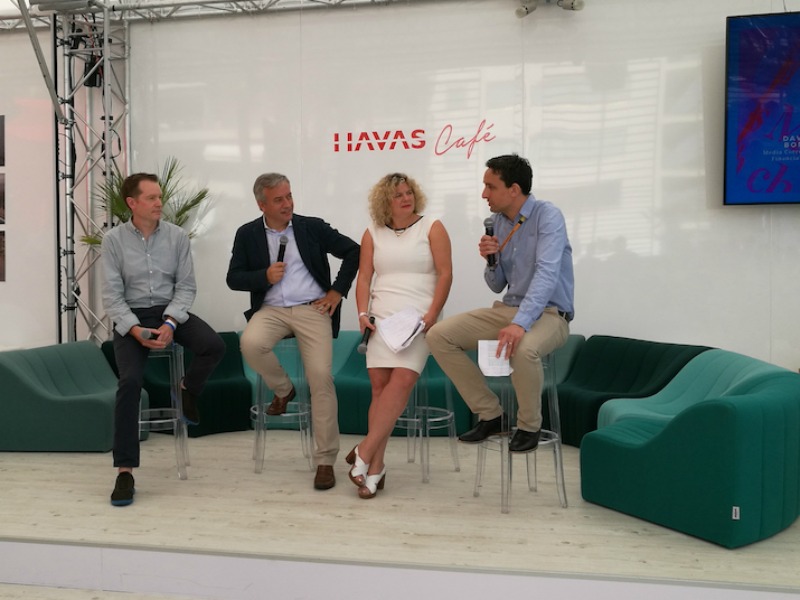Arun Sudhaman 22 Jun 2017 // 7:22AM GMT

CANNES — Brands must help combat the rise of fake news, according to a panel of leading journalists at the Cannes Lions yesterday.
The Havas PR session, which featured FT media correspondent David Bond, BBC Global News CEO Jim Egan, and Sunday Times editorial director Eleanor Mills noted that all players in the crisis — journalists, advertisers and technology platforms — need to take a measure of responsibility for what the New Yorker editor David Remnick described as “an emergency” similar to climate change at a different Cannes discussion a day earlier.
"We cannot and will not eliminate untruth entirely, like pollution," said Remnick. "But how can we reduce it, and breathe a little better, and avoid a toxic cloud of our own making?"
Remnick described “the rising tide of bullshit,” citing Jon Stewart’s metaphor of a “bullshit mountain” and claiming: “We’ve reached the summit of bullshit mountain; you have to wonder if we’ll find our way down again.”
In this, the Havas PR session evinced a more positive attitude, while pointing out that brands have a key role to play, particularly when it comes to their programmatic spend.
"Brands and advertisers need to think about what sort of entities they are getting behind, whether they are holding platforms to account," said Egan.
"The money that is making the fake news ecosystem worthwhile has to be turned off," added Mills. "It’s programmatic which is driving a lot of that behaviour. If you’re chasing clicks for money, and the programmatic ads are going to that content, it’s a really vicious cycle to the bottom."
Unsurprisingly, technology platforms were also singled out for their role in helping spread fake news. Remnick was critical of Facebook’s response to this suggestion, but he stopped short of blaming social media. “No one should romanticize the old media landscape. The sins of even the best outlets are well documented.”
"There’s a responsibility on the part of the tech platforms," said Bond. "To be fair to them, they are trying to understand things like kite marks and trying to find a way to differentiate quality news brands in the newsfeed."
However, noted Bond, that does not mean that people themselves can evade responsibility for what they believe. "Ultimately, people have to wise up to this," he said. "They have to use their own brains to work out what is true and what is not true."
The media players themselves admitted that they are under increasing pressure to demonstrate their own credibility, with Egan pointing to the BBC's relaunch of its 'Reality Check' service.
"We were under huge pressure during the Brexit referendum," said Egan. "One of the dangers is you fall into this trap of false balance. That equivocal position where you’re not really helping the audience — that’s something we need to move away from fairly quickly."



































.jpg)

















